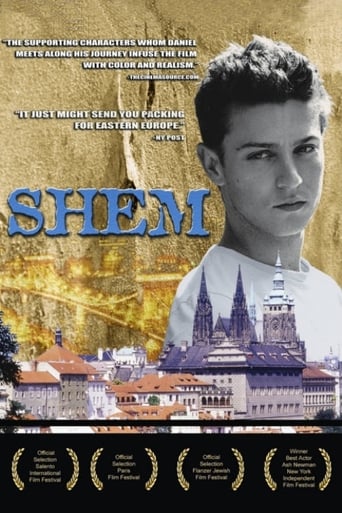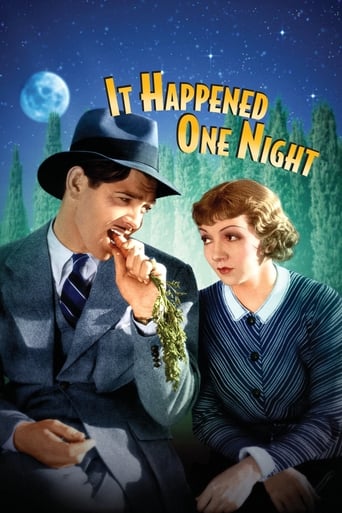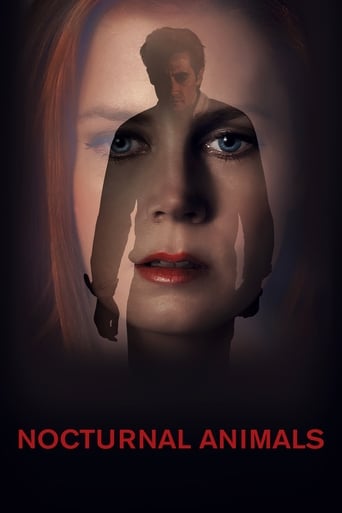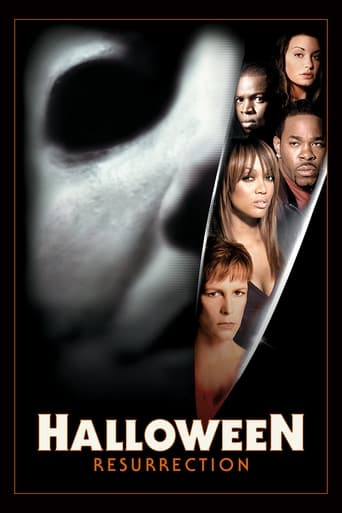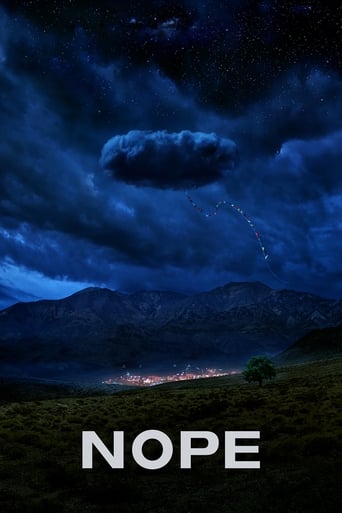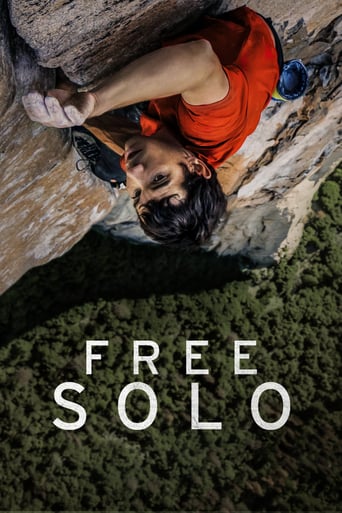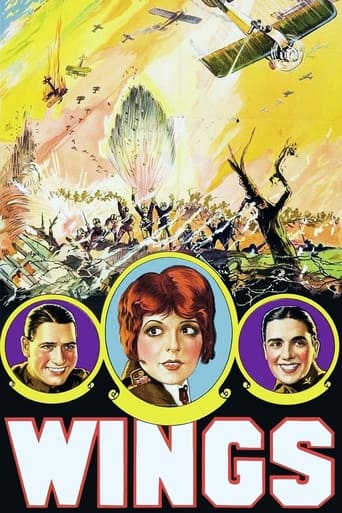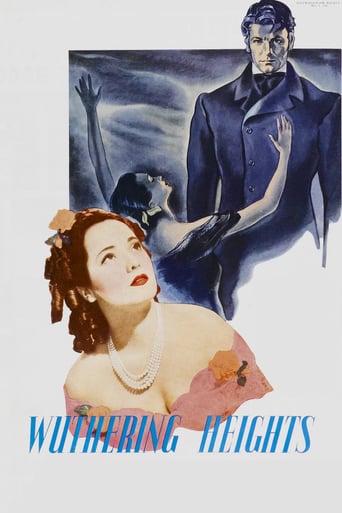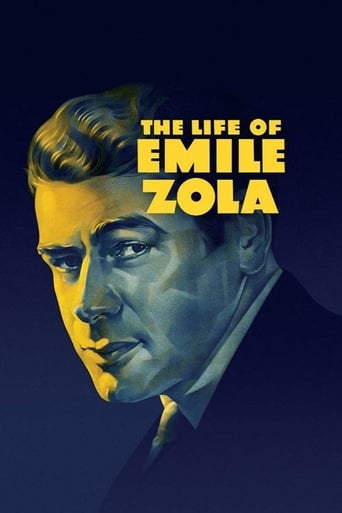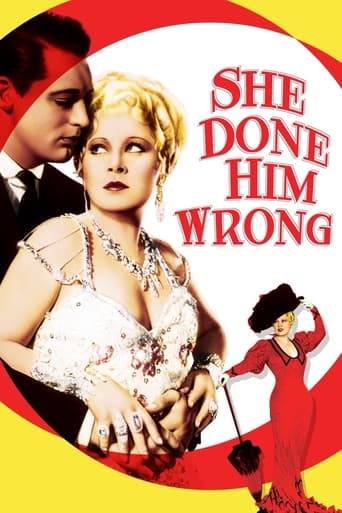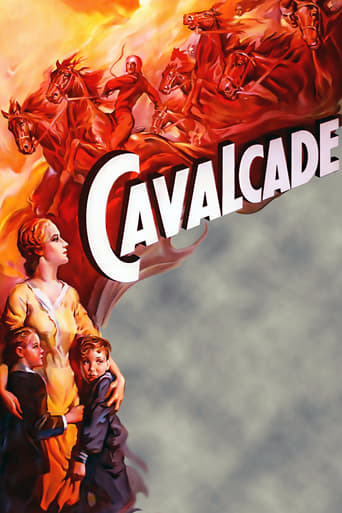


Cavalcade
A cavalcade of English life from New Year's Eve 1899 until 1933 is seen through the eyes of well-to-do Londoners Jane and Robert Marryot. Amongst events touching their family are the Boer War, the death of Queen Victoria, the sinking of the Titanic, and the Great War.
-
- Cast:
- Diana Wynyard , Clive Brook , Una O'Connor , Herbert Mundin , Beryl Mercer , Irene Browne , Tempe Pigott


Similar titles
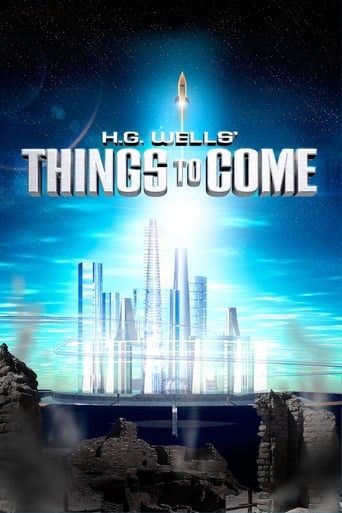
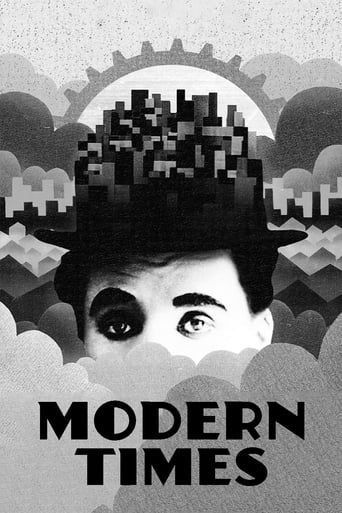
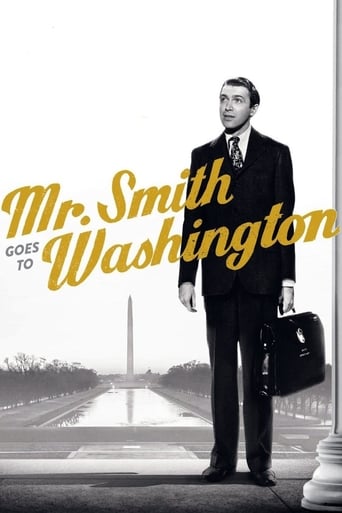
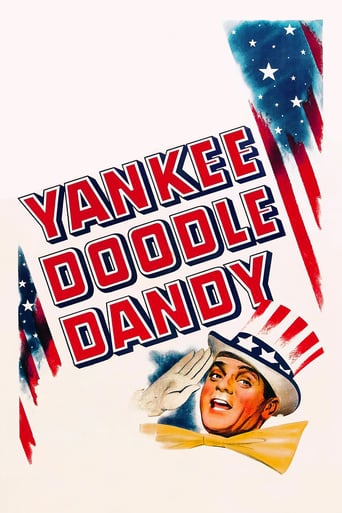
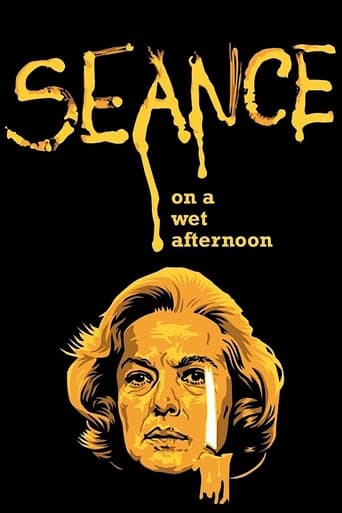
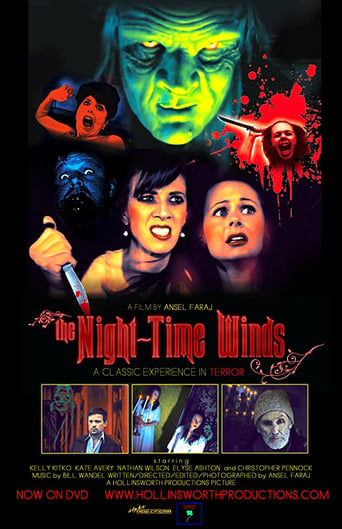
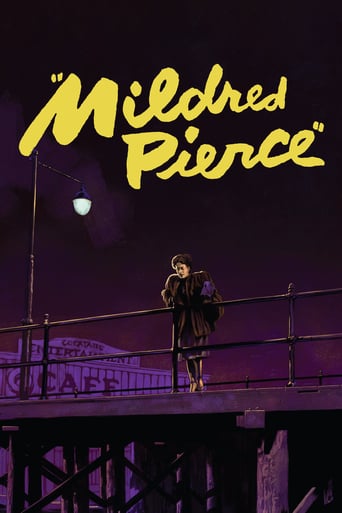
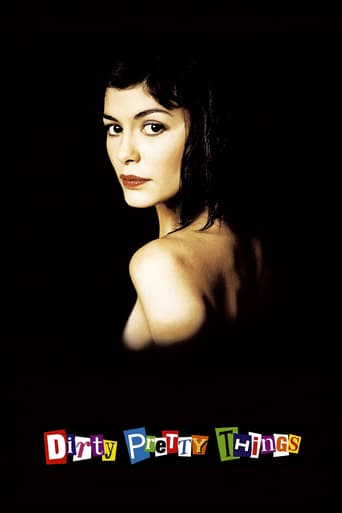
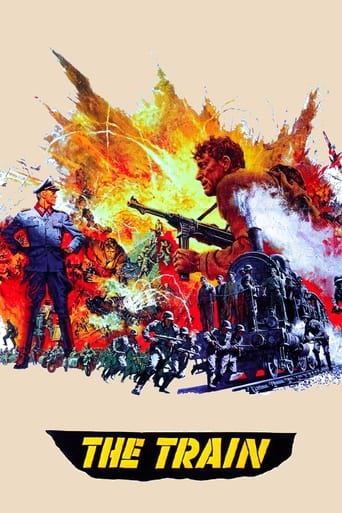
Reviews
Simply A Masterpiece
Although it has its amusing moments, in eneral the plot does not convince.
I wanted to like it more than I actually did... But much of the humor totally escaped me and I walked out only mildly impressed.
It's an amazing and heartbreaking story.
For those of you keeping up with my retrospective on all the Best Picture winners up to now, you will know these writers, directors and actors were still not accustomed to the transition to talkies, but they were slowly getting the hang of it. And on top of it all, they were even taking advantage of the visual medium. The sets, the ability to shoot on location, the cinematography, the lighting, and down the road, the color of the film itself all helped contribute all kinds of creative ways for these filmmakers to either make the impossible possible, or reliving the past. King Kong, a film that came out in 1933, is one of those films that accomplished this task and so much more.But unfortunately, we're not reviewing King Kong today because it didn't win Best Picture. It wasn't even nominated. What won instead, unfortunately, was a film that made no attempt at all to take advantage of what film as a medium has to offer; Cavalcade. Yeah, they adapted one of the drollest of plays into a feature film, and people actually loved it.What's the story? It's the life of an English couple from the New Years Eve of 1899 up until then-present day 1933 as they experience historical events include the Second Boer War, the death of Queen Victoria, the sinking of the Titanic, and World War I among many other things. And within the now-reasonably short running time of 110 minutes, then that means the film's going to be either exciting or rushed. This film is anything but exciting; it's dull as a rock. There is absolutely no soul in this picture at all.And the picture is indeed rushed. These events are just glanced over for no good reason other than to show that they lived through them, and they never seem to show how much they impacted them or the world around them. There's nothing interesting about these characters or this story whatsoever. And what's worse is that these events don't seem to impact the viewer in any way because those scenes are executed in a manner identical to those of a play; you never see these events happen. Come, on! We already had 2 War films win Best Picture in the past; where's the budget? Where are the calamities? For a sentimental film, this film sure does feel devoid of any real emotions.And that's why I call this film dull and soulless; there's no logic or reason, no critical thinking, not even pure sentimental hogwash. At least all the previous nominees had a semblance of a soul; this film doesn't. This film is completely static and unmoving to say the least. The acting is boring, the characters are boring, and the story is boring. There is nothing positive to say outside of the fact that the premise had promise. More extravagance (to help these events leave a bigger impact), about 20 or 30 more minutes added to the running time, and more interesting characters. That is all that is needed to make this film any good. So while the film is pretty bad, it is salvageable. I would just skip it if I were you. 2.5 out of 10 rounded up to 3 out of 10.
Unlike the big Oscar winners of later decades, the Best Pictures of the 1930s have largely been neglected (the only notable exceptions being It Happened One Night and Gone with the Wind). Of them all, Cavalcade is perhaps the most rarely remembered, and if remembered at all frequently dismissed as a dated, stagy melodrama, a product of an embarrassing era in cinema's history that even film buffs tend to shy away from, without even the added attraction of some pre-code naughtiness. But are bare legs, innuendo and mean-faced gangsters the only things worth salvaging from this era? The accusations of staginess are not surprising, Cavalcade being adapted from a Noel Coward play. But while Coward may have been a bit of a theatre snob with a naively upper-class attitude, he is not as impenetrably British as he may appear at first glance. Although Cavalcade focuses ostensibly on the concerns of a typical well-to-do English family, Coward strings together his story from universally emotional events, many of which would have related to the lives of people all over the world, and most of which still bear a kick today. Granted, Cavalcade's social conservatism and stiff-upper-lipped fustiness can be a little alienating, but this is not a preachy movie and nothing is forced home or laid on too thickly. Besides, Coward's warm humanism pervades even the most clichéd of characters.The director is Frank Lloyd, himself an unfairly forgotten man of old Hollywood. Many will not understand why Lloyd one an Oscar for his work on Cavalcade, because he does not use any overt camera tricks, but the truth is Lloyd is too much of a master to need any tricks. Many of the claims of stiltedness probably stem from the fact that Lloyd uses a lot of long and often static takes, but there is still subtle and clever technique at work here. Take that first scene of Diana Wynyard and Clive Brook making their preparations for New Years Eve. A large chunk is done without a single edit, yet with a few simple panning manoeuvres Lloyd's camera is smoothly changing the focus and keeping things feeling fresh, at one point having Brook's face appear in the mirror, then following her over to the table where the two of them stand with a garland of flowers framing the lower edge of the shot. Another director might have used a dozen cuts in the same scene, but Lloyd does it with just one or two. And the great thing is you don't notice. Often he will shift our attention from one place to another, but do it by having the camera follow a walking character to disguise the movement, such as the father carrying off a crying child on the beach. In spite of this unostentatious approach, the style is purely cinematic.To be fair however, most of the accusations of theatricality fall upon the cast. I would however describe the performances here as being stereotyped rather than grandiosely hammy. Diana Wynyard was the only Oscar nominee for acting, although she does little here but emote rather wetly. In her favour she does put a lot of expression into her small gestures, and as the picture progresses she ages her character convincingly. More realistic turns however are given by Clive Brook and Irene Browne. The real surprise performance of the lot though is Herbert Mundin. In his many supporting roles Mundin typically played a bumbling yet lovable comedy character, but here he is forceful, passionate and rather moving. Had such a thing existed in 1933, he could have been in line for a Best Supporting Actor award.But, aside from all these qualities, why did Cavalcade of all things appeal to the Academy, which was not exactly cosmopolitan in those days? The answer may be that the mood of the picture was very apt for the times. This was of course the height of the depression, and despite appearances Cavalcade is a rather downbeat affair. The gung ho optimism of the Boer war is replaced by the bitter folly of the World War; characters disappear from the narrative, everyday life becomes increasingly impersonal, until the final scenes are almost despairing. And yet this is not some tale of personal tragedy. Crowds are a constant presence in Cavalcade, with Lloyd using them as a backdrop to a teary farewell, the bookends to a scene or even just a noise heard through a window. In Coward's play characters are killed off in significant events making them symbolic of the losses of a nation. This is a story of great suffering, but it is a story of collective suffering, and this makes it comparable to the most poignant and affecting pictures of depression-era Hollywood.
This is a letter perfect film taking in the sweep of time from 1900-1933 for a British upper-class family (the Marryots) and a family that serves them (the Bridges).If you enjoyed Cavalcade you might want to see the 1944 film, This Happy Breed. I think of the two as companion pieces.Cavalcade looked took an Upstairs-Downstairs approach, showing families at either end of the economic and class scale, from 1900-1933. This Happy Breed focuses on the Gibbons, a middle-class family, beginning with the end of the Great War to the start of World War II. It was the second film directed by David Lean.The movies common ancestor is Noel Coward. Both films adapted from plays written by him.
Well, I finally got the chance to see this. It's not an easy movie to get a hold of. For several years, now, I had had only two movies outstanding in my quest to see all the Best Picture films, and this was one of them; the other is Wings. Netflix, usually a wonderful source, mysteriously refused to have either of them. Finally, a friend of mine simply *bought* me the two films. I got the chance to watch Cavalcade tonight.Meh. I guess it's reasonably well made, for what it is. But I don't especially care for what it is. Exactly the kind of movie I don't care for, it's more a sequence of events rather than having any coherent plot. Rather a history lesson of the early 20th century, spun around the lives of two families (and to make that work, it sometimes gets rather contrived).But I think what really harms the movie the most for me is simply when it was made. The movie covers the time frame of 1900-1933, the year the film came out. And if you make a movie like this in 1933, you are necessarily going to have a skewed view of history. We, the viewers, know '33 as the year Hitler came to power and set events in motion that would lead to perhaps the biggest event of the century: WWII. But the film, of course, doesn't know that yet, so when it makes a big deal out of the *Boer War*, it's pretty weird, and hard to get all worked up about it. Similarly, from the time of the movie-- and especially the *place* of the movie (it is a British film), I guess it made sense to have the death of Queen Victoria be a big deal, but as a modern American, I really was unable to shake off a profound feeling of "Who cares????" And you might expect that, again, from 1933, the Great Depression might get some coverage. But no. No time for a trivial little thing like the Great Depression, c'mon, we've gotta tell people all about the hell that was the *Boer War*!!! So I'm afraid this film really didn't do it for me. It wasn't awful, I wouldn't list it as the worst Best Picture (I've seen some I positively *hated*, and I didn't hate this). But it wasn't magnificent.

